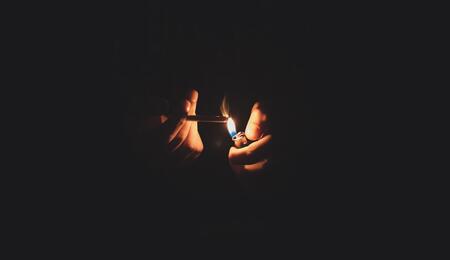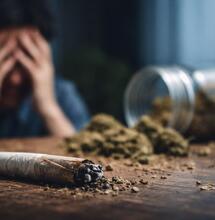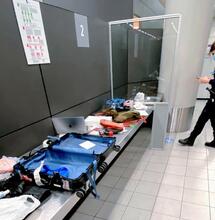What Happens if a Minor is Caught with Cannabis?

It's entirely illegal to possess any drug as a minor, and cannabis is being no exception. Weed is one of the most commonly used drugs among minors and teens. Getting caught with it can have both financial and legal consequences.
Minors possessing controlled substances remain an act universally illegal throughout the United States. Cases are treated as criminal offenses, just like for adults but with the penalties usually less severe.
The unlawful possession of cannabis or any other drug by a minor (anyone under 18 years old) represents a criminal offense. Minors caught illegally possessing weed are subject to juvenile drug possession charges for which there are different state-level penalties. Those penalties could range from drug counseling and conditions to probation, pre-trial diversion and juvenile detention.
Drugs most commonly possessed by minors and teens include marijuana, but also cocaine, ecstasy, LSD, and prescription medications like Adderall, Xanax, Vicodin, etc.
The juvenile drug court has its differences from an adult court. Nevertheless, while minors might be subject to lesser penalties, the severity of those penalties is determined by familiar court logic. The three main factors are the drug's federal schedule classification, the amount of drug caught on the minor's person, and whether they've been to court before.
Because each state handles juvenile drug cases in its own way, minors may be subject to different penalties for the same offense once they are in a court process. It would really depend on where they are resident.
For example, in Colorado, if you are under 21 and caught with up to an ounce of weed, this can result in a misdemeanor or felony charge, depending on the circumstances. If the investigation determines that the weed was intended for sale or distributed or was being cultivated, then the minor could face additional charges.
In Florida, if someone is caught with less than 20 grams of marijuana, that counts as a First Degree Misdemeanor Possession of Cannabis (marijuana), regardless of whether the person is above 18 years old or not. Included within this charge is a maximum penalty of one year in prison and a $1,000 fine.
On the other hand, a state such as California has a slightly different approach. Californian minors caught in possession of illegal drugs are charged with delinquency rather than the crime an adult would typically be alleged with. The young offender is immediately put into a juvenile court proceeding.
In any case, even before a minor goes to trial, being arrested on marijuana-related charges could lead to other legal consequences such as revoking a driver's license for a minimum of six months, losing school or athletic privileges, and could possibly also face suspension or expulsion from school.
It's an extenuating circumstance if it's a minor first offense and if that offense is small, such as say getting caught with a really small amount of weed. In that case, it's common for the court to give a juvenile first offender a chance to correct their mistake and will instruct them for drug counseling or drug rehabilitation. Or community service or probation.
It's the more serious offenses that could result in jail time in the end, like carrying a more significant amount of weed, dealing to other minors, or carrying out a violent act related to the drug crime.
Drug counseling
The court can order the minor to therapy or alternatively a rehab program in an effort to assist the young individual with understanding what led to the use of drugs.
Drug rehabilitation
The court may order a specific facility or program that the minor will need to go to. The juvenile could be monitored for their progress within that program or could be asked to self-report how the treatment goes.
Community service
The juvenile may be asked to undertake community service as part of "diversion." The main goal is to make the young person aware of the cost of their offense to their neighborhood or community.
Probation
Just like adults who are on probation, a juvenile probation program would ask young offenders to report to a probation officer, and their freedoms are curtailed in a similar way.
Juvenile Detention
It can involve home confinement, placement with a foster family or guardian, or in a juvenile or group home, or in a secure juvenile detention center. This punishment is usually reserved for felony-level offenses where the minor appears as a repeat offender or has been violent.
Final Thoughts
After all of this is said and written, it's worth noting yet once again that the nation could benefit from better cannabis laws for young people. Prohibition and penalties are not stopping young people from cannabis use. Cannabis legalization for those of legal age has not reduced arrests for youths. Neither have youths benefited from the decriminalization policies introduced with legalization.
We just have continually young people summoned to courts, ending up in trials that potentially ruin their lives, for just a few grams or so weed. If lawmakers start to view drug use by juveniles as a health issue rather than a criminal issue, only then we can come up with better approaches how to address cannabis use among the younger populations.












